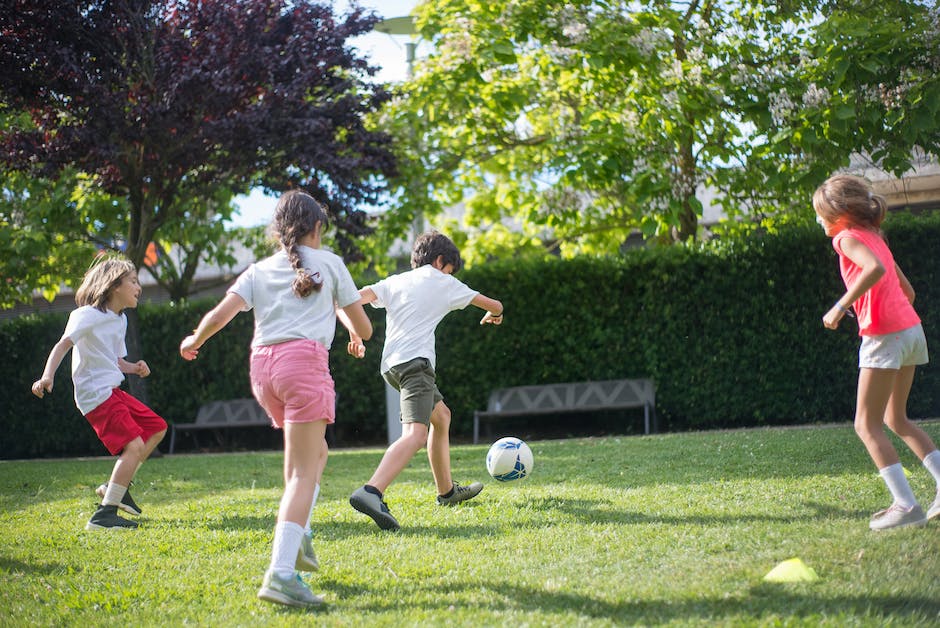Table of Contents
Unlocking Potential Through Enriching Experiences
Introduction
Extracurricular activities play a crucial role in holistic education by providing students with opportunities to develop various skills and qualities beyond the academic curriculum. These activities encompass a wide range of interests, such as sports, arts, community service, and clubs, allowing students to explore their passions, enhance their social and emotional well-being, and foster a well-rounded development. By engaging in extracurricular activities, students can acquire valuable life skills, build character, and develop a sense of responsibility, teamwork, leadership, and time management. Overall, these activities contribute significantly to a comprehensive education that goes beyond textbooks and classrooms, preparing students for success in various aspects of life.
Benefits of Extracurricular Activities in Holistic Education

Extracurricular activities play a crucial role in holistic education, providing students with numerous benefits that extend beyond the classroom. These activities, which encompass a wide range of interests and talents, allow students to explore their passions, develop new skills, and foster personal growth. From sports teams to debate clubs, music ensembles to community service organizations, extracurricular activities offer a wealth of opportunities for students to engage in meaningful experiences that complement their academic pursuits.
One of the key benefits of participating in extracurricular activities is the development of social skills. Through these activities, students have the chance to interact with their peers in a non-academic setting, fostering the development of teamwork, communication, and leadership skills. Whether it’s working together on a group project, coordinating a performance, or strategizing during a game, students learn how to collaborate effectively and navigate interpersonal relationships. These skills are invaluable in the real world, where success often hinges on one’s ability to work well with others.
Furthermore, extracurricular activities provide students with a platform to explore their interests and passions outside of the traditional academic curriculum. For instance, a student who excels in mathematics may discover a love for music through joining the school band. By engaging in activities that align with their personal interests, students are more likely to feel motivated and enthusiastic about their education as a whole. This sense of passion and purpose can have a profound impact on their overall academic performance and well-being.
In addition to fostering personal growth and exploration, extracurricular activities also offer students the opportunity to develop important life skills. For example, participating in a debate club can enhance critical thinking and public speaking abilities, while joining a sports team can teach discipline, perseverance, and resilience. These skills are not only applicable to the specific activity but also transferable to various aspects of life. Students who engage in extracurricular activities are more likely to develop a strong work ethic, time management skills, and the ability to handle stress and setbacks.
Moreover, extracurricular activities can have a positive impact on a student’s college and career prospects. Admissions officers and employers often look for well-rounded individuals who have demonstrated a commitment to their interests and have a track record of involvement in extracurricular activities. These activities can serve as a testament to a student’s dedication, leadership potential, and ability to balance multiple responsibilities. Furthermore, participation in extracurricular activities can provide students with valuable networking opportunities and connections that can be beneficial in their future endeavors.
In conclusion, extracurricular activities are an integral component of holistic education, offering students a multitude of benefits that extend beyond the classroom. From developing social skills and exploring personal interests to fostering important life skills and enhancing college and career prospects, these activities play a vital role in shaping well-rounded individuals. By encouraging and supporting students’ involvement in extracurricular activities, educational institutions can provide a comprehensive education that prepares students for success in all aspects of life.
How Extracurricular Activities Enhance Social Skills in Students
Extracurricular activities play a crucial role in the holistic education of students. While academic subjects provide students with knowledge and skills in specific areas, extracurricular activities offer a broader range of benefits that contribute to their overall development. One of the key areas where extracurricular activities have a significant impact is in enhancing students’ social skills.
Engaging in extracurricular activities provides students with opportunities to interact with their peers outside of the classroom setting. Whether it’s participating in team sports, joining a debate club, or being part of a music ensemble, these activities foster social interactions and help students develop important social skills. Through these interactions, students learn how to communicate effectively, collaborate with others, and build meaningful relationships.
Participating in team sports, for example, teaches students the value of teamwork and cooperation. They learn how to work together towards a common goal, understand the importance of supporting and relying on their teammates, and develop a sense of camaraderie. These skills are not only essential in sports but also transferable to various aspects of life, such as group projects in school or working in a professional setting.
Extracurricular activities also provide students with a platform to express themselves and explore their interests. Whether it’s through drama club, art classes, or joining a school newspaper, these activities encourage students to step out of their comfort zones and showcase their talents. By doing so, students gain confidence in their abilities and learn how to express themselves effectively. This confidence and self-expression are vital in building strong interpersonal skills, as students become more comfortable in social situations and are better equipped to express their thoughts and ideas.
Furthermore, extracurricular activities often involve students from different backgrounds and with diverse interests. This diversity exposes students to different perspectives and helps them develop empathy and understanding towards others. By interacting with peers who have different opinions, beliefs, and experiences, students learn to appreciate diversity and develop the ability to work harmoniously with people from various backgrounds. These skills are crucial in today’s globalized world, where collaboration and understanding across cultures are highly valued.
In addition to enhancing social skills, extracurricular activities also contribute to the overall well-being of students. Engaging in activities they enjoy outside of the academic realm helps reduce stress and provides a healthy outlet for their energy and emotions. This, in turn, positively impacts their social interactions, as students who are happy and fulfilled are more likely to engage positively with others.
In conclusion, extracurricular activities play a vital role in enhancing students’ social skills. Through these activities, students learn how to communicate effectively, collaborate with others, and build meaningful relationships. They also gain confidence in expressing themselves and develop empathy towards others. These skills are not only valuable in their academic journey but also in their personal and professional lives. Therefore, schools should prioritize and encourage students to participate in extracurricular activities as part of their holistic education.
The Impact of Extracurricular Activities on Academic Performance
Extracurricular activities have long been recognized as an integral part of a holistic education. These activities, which take place outside of the regular academic curriculum, provide students with opportunities to explore their interests, develop new skills, and engage in meaningful experiences. While the benefits of extracurricular activities are often discussed in terms of personal growth and character development, their impact on academic performance should not be overlooked.
Research has consistently shown a positive correlation between participation in extracurricular activities and academic success. A study conducted by the National Center for Education Statistics found that students who were involved in extracurricular activities had higher grade point averages and were more likely to graduate from high school than their non-participating peers. This suggests that engagement in extracurricular activities can enhance students’ academic performance.
One reason for this positive relationship is that extracurricular activities provide students with opportunities to apply the knowledge and skills they have acquired in the classroom to real-world situations. For example, a student who participates in a science club may have the chance to conduct experiments and solve problems that are directly related to the concepts they have learned in their science classes. This hands-on experience not only reinforces their understanding of the subject matter but also fosters critical thinking and problem-solving skills that are essential for academic success.
Furthermore, extracurricular activities can help students develop important study habits and time management skills. Many extracurricular activities require a significant time commitment, which forces students to prioritize their responsibilities and manage their time effectively. By juggling their academic workload with their extracurricular commitments, students learn how to balance competing demands and develop the discipline necessary to succeed academically.
Participation in extracurricular activities can also have a positive impact on students’ motivation and engagement in their academic work. When students are passionate about a particular activity, they are more likely to be motivated to excel in their academic pursuits as well. For example, a student who is passionate about playing a musical instrument may be more inclined to practice regularly and strive for excellence in their music classes. This intrinsic motivation can lead to increased effort and dedication in all areas of their academic life.
Moreover, extracurricular activities can provide students with a sense of belonging and connection to their school community. Research has shown that students who feel connected to their school are more likely to be engaged in their academic work and perform better academically. By participating in extracurricular activities, students have the opportunity to form relationships with peers who share similar interests and values, as well as with teachers and mentors who can provide guidance and support. These connections can foster a sense of belonging and create a positive school climate that is conducive to learning.
In conclusion, extracurricular activities play a crucial role in holistic education by positively impacting students’ academic performance. Through hands-on experiences, the development of study habits and time management skills, increased motivation and engagement, and a sense of belonging, students who participate in extracurricular activities are more likely to excel academically. Therefore, schools and educators should recognize the importance of providing a wide range of extracurricular opportunities to students, as they contribute to their overall educational experience and success.
Promoting Personal Growth and Development through Extracurricular Activities
Extracurricular activities play a crucial role in holistic education by promoting personal growth and development. These activities, which take place outside of the regular academic curriculum, provide students with opportunities to explore their interests, develop new skills, and build meaningful relationships. Research has shown that participation in extracurricular activities can have a positive impact on various aspects of a student’s life, including their academic performance, social skills, and overall well-being.
One of the key benefits of extracurricular activities is their ability to enhance a student’s academic performance. Engaging in activities such as debate clubs, science fairs, or math competitions can deepen a student’s understanding of the subjects they are studying in school. These activities often require critical thinking, problem-solving, and teamwork, skills that are transferable to the classroom. Research has shown that students who participate in extracurricular activities tend to have higher grades and better attendance records compared to their peers who do not engage in such activities.
Furthermore, extracurricular activities provide students with an opportunity to explore their interests and passions outside of the traditional academic setting. Whether it’s joining a sports team, participating in a drama club, or learning a musical instrument, these activities allow students to discover their talents and develop new skills. By pursuing their interests, students gain a sense of purpose and fulfillment, which can contribute to their overall well-being and happiness.
In addition to academic and personal growth, extracurricular activities also play a vital role in developing a student’s social skills. These activities provide a platform for students to interact with their peers, collaborate on projects, and build lasting friendships. Through teamwork and cooperation, students learn how to communicate effectively, resolve conflicts, and work towards common goals. These social skills are essential for success in both personal and professional life, as they enable individuals to navigate relationships and work effectively in a team setting.
Moreover, extracurricular activities can also help students develop important life skills such as time management, leadership, and resilience. Balancing academic responsibilities with extracurricular commitments teaches students how to prioritize their time and manage their workload effectively. Taking on leadership roles within clubs or organizations allows students to develop their leadership skills and learn how to motivate and inspire others. Additionally, participating in competitive activities such as sports or debate competitions can teach students resilience, as they learn to handle both success and failure with grace and determination.
It is important to note that the benefits of extracurricular activities are not limited to students’ personal growth and development. These activities also contribute to the overall school community by fostering a sense of belonging and school spirit. Extracurricular activities bring students together, creating a supportive and inclusive environment where everyone can thrive. This sense of community can have a positive impact on students’ mental health and well-being, as they feel connected and valued within their school.
In conclusion, extracurricular activities play a vital role in holistic education by promoting personal growth and development. These activities provide students with opportunities to explore their interests, develop new skills, and build meaningful relationships. From enhancing academic performance to fostering social skills and developing important life skills, extracurricular activities contribute to a well-rounded education. By recognizing the importance of extracurricular activities and providing students with a wide range of options, schools can ensure that students have the opportunity to thrive both inside and outside the classroom.
Q&A
1. What are extracurricular activities?
Extracurricular activities are activities that take place outside of the regular academic curriculum, such as sports, clubs, arts, and community service.
2. How do extracurricular activities contribute to holistic education?
Extracurricular activities provide opportunities for students to develop various skills, such as teamwork, leadership, time management, and problem-solving, which are essential for holistic education.
3. What are the benefits of participating in extracurricular activities?
Participating in extracurricular activities can enhance social skills, promote physical and mental well-being, foster personal growth, improve academic performance, and provide opportunities for self-expression and exploration of interests.
4. How do extracurricular activities complement academic learning?
Extracurricular activities offer a practical application of academic knowledge, reinforce classroom learning, and provide a well-rounded education by exposing students to different experiences, perspectives, and challenges outside of the traditional academic setting.
Conclusion
Extracurricular activities play a crucial role in holistic education. They provide students with opportunities to develop various skills, such as leadership, teamwork, time management, and problem-solving. These activities also promote personal growth, enhance social interactions, and foster a sense of belonging within the school community. Moreover, extracurricular activities allow students to explore their interests and passions outside of the academic curriculum, leading to a more well-rounded and balanced education. In conclusion, extracurricular activities are an integral part of holistic education, contributing to the overall development and well-being of students.





Recent Comments